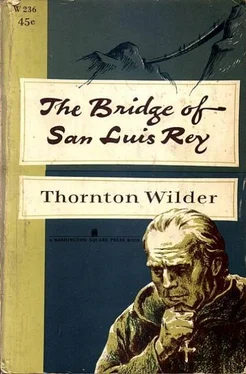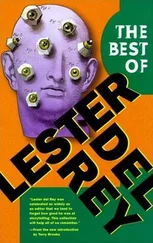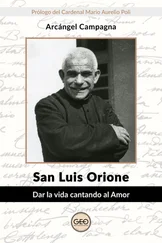And at once, in one unhesitating stroke of the will, he removed the Perichole from his heart.
He blew out the candle and lay down on his bed. He was trembling. He said aloud with exaggerated casualness: “Well, that’s the last letter I write for that woman. She can go and find a pander somewhere else. If ever she calls here or sends for me when I’m out, tell her so. Make it plain. That’s the last I have to do with her,” and with that he began reciting his evening psalm aloud. But he had hardly reached A sagitta volante in die when he became aware that Esteban had risen and was lighting the candle.
“What’s the matter?” he asked.
“I’m going out for a walk,” replied Esteban sombrely, fastening his belt. After a moment, he broke out with an assumption of anger: “You don’t have to say ... what you just said, for me. I don’t care whether you write her letters or not. You don’t have to change for me. I haven’t anything to do with that.”
“Go to bed, you fool. God, you’re a fool, Esteban. What made you think I said that, for you? Don’t you believe I mean it when I say I’m through with her? Do you think I want to write any more of her dirty letters and get paid for them like that?”
“It’s all right. You love her. You don’t have to change because of me.”
“ ‘ Love her?’ Love her? You’re crazy, Esteban. How could I love her? What chance would there be for me? Do you suppose she’d give me those letters to write if there were any chance? Do you suppose she’d push a piece of money across the table every time. ... You’re crazy, Esteban, that’s all.”
There was a long pause. Esteban would not go to bed. He sat by the candle in the middle of the room, tapping with his hand on the edge of the table.
“Go to bed, you fool,” shouted Manuel, rising on one elbow under the blanket. He was talking in their secret language and the new pain at his heart gave a greater ring of reality to his assumption of rage. “I’m all right.”
“I won’t. I’m going out for a walk,” replied Esteban picking up his coat.
“You can’t go out for a walk. It’s two o’clock. It’s raining. You can’t go and walk about for hours like that. Look, Esteban, I swear to you there’s nothing left to all that. I don’t love her. I only did for a time.”
By now Esteban stood in the dark of the open door. In the unnatural voice with which we make the greatest declarations of our lives, he muttered: “I’m in your way,” and turned to go.
Manuel leapt out of his bed. His head seemed to be full of a great din, a voice crying out that Esteban was going away forever, was leaving him alone forever. “In the name of God, in the name of God, Esteban, come back here.”
Esteban came back and went to bed and the matter was not mentioned again for many weeks. The very next evening Manuel had an opportunity of declaring his position. A messenger arrived from the Perichole and was told harshly to inform the actress that Manuel would write no more letters for her.
One evening Manuel tore open the flesh on his knee against a piece of metal.
Neither brother had ever been ill for as much as a day in his life, and now Manuel, utterly bewildered, watched his leg swell and felt the waves of pain rise and fall in his body. Esteban sat by and stared at his face trying to imagine what great pain was. At last one midnight Manuel remembered that the signboard of a certain hairdresser in the city described the proprietor as an experienced barber and surgeon. Esteban ran through the streets to fetch him. He pounded on the door. Presently a woman leaned out of a window and announced that her husband would be back in the morning. During the fearful hours that followed, they told one another that when the doctor had seen the leg all would be well. He would do something about it, and Manuel would be out around the town in a day or two, even in a day perhaps, even less than a day.
The barber arrived and prescribed various draughts and ointments. Esteban was instructed to lay cold cloths on his brother’s leg every hour. The barber withdrew and the brothers sat down to wait for the pain to subside. But while they continued staring into one another’s face waiting for the miracle of science the pain grew worse. Hour after hour Esteban approached with his dripping towel and they discovered that the moment of its application was the worst of all. With all the fortitude in the world Manuel could not prevent himself from shouting and from flinging himself about upon the bed. Night came on and still Esteban stolidly waited and watched and worked. Nine, ten, eleven. Now when the time drew near to apply the cloths (the hour struck so musically from all those towers) Manuel would plead with Esteban not to do his work. He would resort to guile and declare that he scarcely felt it. But Esteban, his heart bursting with pain and his lips a line of iron, would roll back the blanket and bind the towel fiercely in its place. Manuel gradually became delirious and under this application all the thoughts he did not permit himself in his right mind would burst magnified from his mouth.
Finally at two o’clock, out of his mind with rage and pain, and flinging himself half out of the bed until his head struck the floor, Manuel cried: “God condemn your soul to the hottest hell there is. A thousand devils torture you ever, Esteban. God condemn your soul, do you hear?” At first, the air gone out of his body, Esteban went out into the hall and leaned against the door, his mouth and eyes wide open. Still he heard from within: “Yes, Esteban, may God damn your beastly soul forever, do you hear that? For coming between me and what was mine by right. She was mine, do you hear, and what right had you ...” and he would go off into an elaborate description of the Perichole.
These outbursts recurred hourly. It was some time before Esteban was able to realize that his brother’s mind was not then clear. After some moments of horror, in which his being a devout believer had its part, he would return to the room and go about his duties with bent head.
Towards dawn his brother became serener. (For what human ill does not dawn seem to be an alleviation?) It was in one of these intervals that Manuel said quite calmly:
“God’s son! I feel better, Esteban. Those cloths must be good after all. You’ll see. I’ll be up and around tomorrow. You haven’t slept for days. You’ll see I won’t cause you any more trouble, Esteban.”
“It’s no trouble, you fool.”
“You mustn’t take me seriously when I try and stop you putting on the old cloths, Esteban.”
A long pause. At last Esteban brought out, barely audible:
“I think ... don’t you think it would be fine if I sent for the Perichole? She could just come and see you for a few minutes, I mean. . . .”
“Her? You still thinking about her? I wouldn’t have her here for anything. No.”
But Esteban was not content yet. He dragged up a few more phrases from the very centre of his being:
“Manuel, you still feel, don’t you, that I came between you and the Perichole and you don’t remember that I told you it was all right with me. I swear to you I’d have been glad if you’d gone away with her, or anything.”
“What are you bringing that up for, Esteban? I tell you, in God’s own name, I never think of that. She’s nothing to me. When are you going to forget that, Esteban? I tell you I’m glad things are as they are. Look, I got to get angry when you keep going back to that.”
“Manuel, I wouldn’t speak of it again, only when you get angry at me about the cloths ... you, you get angry at me about that, too. And you talk about it and you ...”
“Look, I’m not responsible what I say. My old leg hurts then, see.”
Читать дальше












